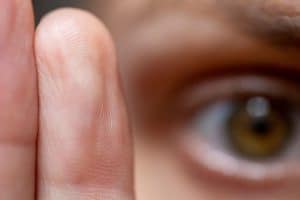Music has long been recognized for its power to evoke emotions, stir memories and connect people. Now, it’s increasingly being used as a powerful tool in the treatment of drug and alcohol addiction. At Swift River, a leading addiction treatment center in Western Massachusetts, music therapy plays a crucial role in helping individuals overcome substance use disorders and reclaim their lives.
What is Music Therapy?
Music therapy is a clinical and evidence-based practice that uses music to address physical, emotional, cognitive and social needs of individuals. In addiction treatment, it serves as a complementary therapy that supports traditional interventions and helps individuals navigate the complex journey of recovery.
The Science Behind the Sound
Research shows music therapy can significantly impact the brain’s reward system and stress response, two key areas affected by addiction. When individuals engage with music, whether by listening, creating or performing, their brains release dopamine – the same neurotransmitter involved in the pleasure and reward cycle of substance use. However, unlike drugs or alcohol, music provides a natural and healthy source of pleasure, helping to rewire the brain’s reward pathways.
Music also reduces levels of cortisol, the stress hormone, and increases production of oxytocin, often called the “bonding hormone.” These physiological changes can help individuals manage stress, reduce cravings and build stronger connections with others – all crucial elements in addiction recovery.
Techniques in Tune with Recovery
Music therapists employ various techniques to address different aspects of addiction and recovery:
- Lyric Analysis: Participants examine song lyrics to explore themes related to addiction, recovery and personal growth. This process helps individuals reflect on their experiences and feelings in a less threatening way.
- Songwriting: Creating original music allows individuals to express emotions, tell their stories and process experiences related to their addiction and recovery journey.
- Improvisation: Spontaneous music-making encourages self-expression, builds confidence and fosters connection with others in group settings.
- Guided Imagery with Music: This technique combines relaxation exercises with carefully selected music to help individuals explore their inner world, confront difficult emotions and visualize a positive future.
- Drumming Circles: Group drumming sessions promote unity, release tension and provide a physical outlet for emotions.
Harmonizing Health: Benefits of Music Therapy in Addiction Treatment
Music therapy offers numerous benefits for individuals in addiction recovery:
- Improved Mood: Engaging with music can alleviate symptoms of depression and anxiety, common co-occurring disorders in addiction.
- Stress Reduction: Music’s calming effects help individuals manage stress and develop healthier coping mechanisms.
- Enhanced Self-Expression: For those who struggle to verbalize their feelings, music provides an alternative form of communication.
- Increased Motivation: Positive experiences in music therapy can boost motivation for recovery and treatment engagement.
- Social Connection: Group music activities foster a sense of belonging and support, crucial for long-term recovery.

Addressing Trauma Through Melody
Many individuals with substance use disorders have experienced trauma, which can complicate the recovery process. Music therapy provides a safe, non-verbal avenue for processing traumatic experiences. Through carefully structured musical experiences, individuals can access and express emotions related to their trauma without the need for words.
The Growing Chorus of Evidence
A growing body of research supports the effectiveness of music therapy in addiction treatment. Studies have shown that music therapy can reduce cravings, improve treatment retention rates and enhance overall quality of life for individuals in recovery.
It’s important to note that music therapy is not simply listening to music for relaxation. It’s a structured, goal-directed process facilitated by trained professionals who use specific techniques to address individual needs.
The Soundtrack of Recovery
Music therapy offers a unique and powerful approach to addiction treatment, addressing the complex interplay of biological, psychological and social factors involved in substance use disorders. At Swift River, we’ve seen firsthand how the healing power of music can transform lives and support lasting recovery.
If you or a loved one is struggling with addiction, consider exploring the potential of music therapy as part of a comprehensive treatment program. At Swift River, we’re ready to help you compose a new chapter in your life – one of healing, growth and sustained recovery.
To learn more about our music therapy program and other treatment options, call us today at 413-570-9698. Your journey to recovery can start with a single note.













